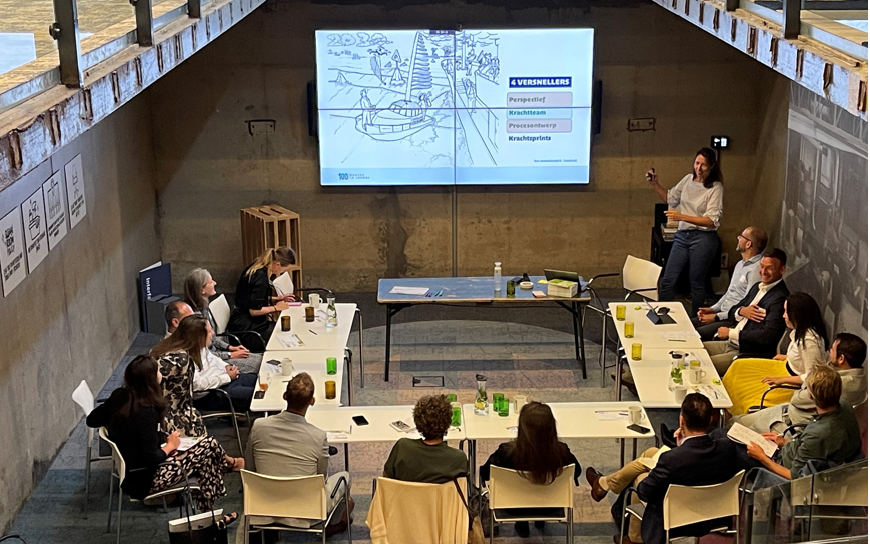In every position, professionals are faced with transition challenges such as climate. This will become more and more intensive in the future: after all, markets are changing faster and entrepreneurship and organization will become more complex due to transition challenges. However, those organizations that are able to respond effectively are the most successful. 'In practice, the subject often turns out to be a 'hot potato', says 100MTC Founder and transformation expert Extercatte: 'and that is a great missed opportunity!'. Through 100MTC Experiences, professionals discover in an accessible, positive way how they can deal with transition topics in their role and in the future they are strengthened and challenged to take extra action. ‘Together we also learn a lot about what professionals need more to be able to contribute from their role’.
How do different functions in organizations deal with climate-related challenges? And what do they need to want more and be able to contribute to the realization of the climate goals? Also read the news item about roles in the transition here.
Below are a few examples where functions work with the subject:
Human Resources: “If we don't start transitioning now, we won't retain our talent. Young employees are always asking about sustainable topics these days. We also play a crucial role in developing new mindsets and new collective behavior that are part of a future-proof organizational model. That is about Learning and Development, but also about establishing a strengthened organizational DNA and culture”.
Operations: “The raw materials we use in production are running out and with rising prices in the market and strong competition, it is important that we come up with a new business model very quickly. The solutions are there, but what priority do we set and can we also decide out of the box with leaders about the repayment term? That is increasingly on the agenda of the consultations.”
Sales: “As an organization we have no climate goals, but our B2B customer's buyer does ask for them: after all, they have to report on their scope 3 activities. If we want to keep this customer, we better get this in order. We are going to feed back this market need to our marketeers.”
Marketing: “We can do so much more to encourage sustainable behavior among our customers, for example by working on our pricing or translating latent needs from the market into new concepts. Then we sell more sustainable products. The information from sales is super relevant to us the customer needs more from us, for example in product information. And what solutions are they really waiting for?”
Such statements are also made by Procurement, Legal, R&D, IT and Finance. What are you still buying? Where is the border? What are new climate-related laws? Do we know enough about it? Are we good enough to influence legislation in the making with our precursor knowledge? How do we deal with repayment terms?
It indicates that much is still possible and that organizations have great power to accelerate sustainability in an integrated manner. The statements we collect during the 100MTC Experiences provide valuable insights into what professionals want and need to contribute to a future-proof organization.


Contact